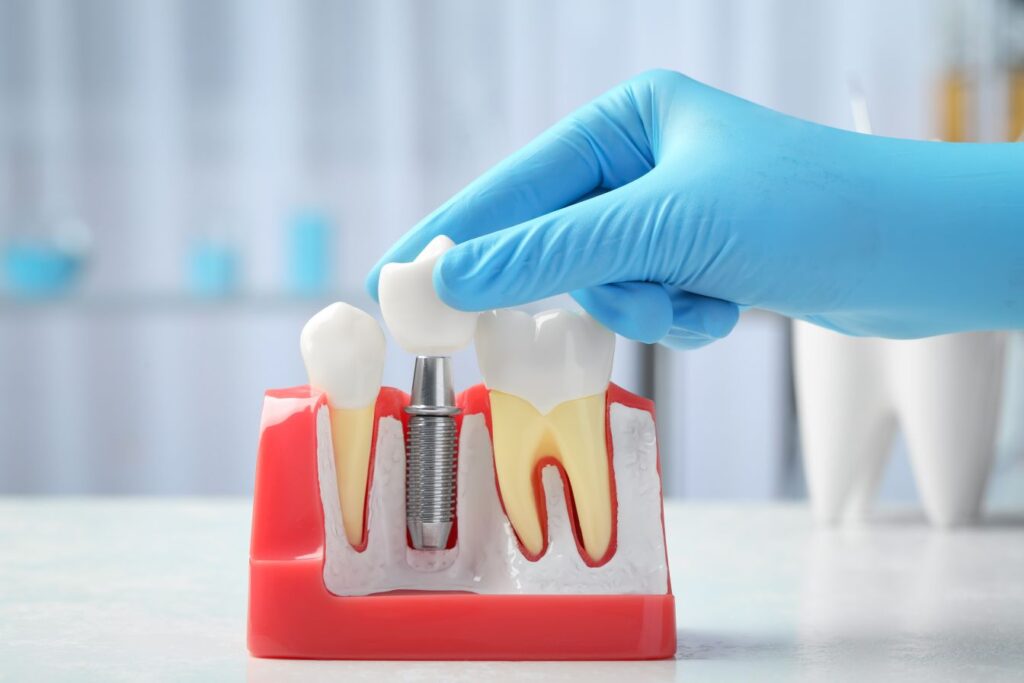
Although it isn’t a good feeling, experiencing sensitivity in a natural tooth is pretty common, and not always a sign of a serious problem. But what happens if you feel an uncomfortable sensation in your dental implant? After all, it’s not a “real” tooth, and thus it shouldn’t feel anything at all, right? Here’s what sensitivity in a prosthetic could mean, and why you should act quickly to take care of it.
“Why does my dental implant feel sensitive?”
Unexpected sensitivity in a dental implant can be very alarming, and rightfully so. Because it’s not a real tooth, it shouldn’t feel anything, good or bad. Unfortunately, when this happens, it likely means your prosthetic is failing, and that it’s time to see your dentist as soon as possible. Other warning signs of dental implant failure include:
- Looseness of the implant itself
- Receding gums surrounding the implant
- Swollen, red gums
- Pain or difficulty chewing with the implanted tooth
- Discomfort or pain surrounding the implant
Dental implant failure can be caused by several things, but most often it is either from a condition called peri-implantitis, which is a gum infection similar to periodontal disease, or failed osseointegration, or when the implant is unsuccessful when fusing with the jawbone.
What Happens Next?
If you are experiencing sensitivity or any other signs of dental implant failure, don’t wait for it to get worse. The sooner you act, the more likely it will be that your implant can be saved, so reach out to your dentist as soon as possible, as treatment called dental implant salvage may be able to assist you. In many cases, your dentist can remove the failing implant, treat the underlying condition, and after a successful healing process, re-implant the dental implant in your jaw.
How Can I Prevent Dental Implant Failure?
The great news about dental implants is that they’re typically very successful. In fact, they boast an incredible 95 percent success rate, even ten years after placement. However, this often relies on the patient protecting their smile. Thankfully, there are many easy ways to do so, including:
- Brushing your teeth twice daily.
- Flossing daily.
- Not smoking, vaping, or using tobacco products.
- Only using your teeth and implants for food; no opening packaging or biting fingernails.
- Wearing a mouthguard if you grind your teeth or play sports.
- Visiting your dentist every six months for your regular check-up and cleaning appointments.
Remember, dental implant failure is not inevitable. In fact, there are many things you can do to prevent it. However, if you notice any warning signs including sensitivity, a loose prosthetic, or redness and swelling around the implant site, please contact your dentist as soon as possible and learn more about how implant salvage could help save your smile!
About Our Practice
Soliel Dental’s dynamic duo, Dr. Diana Vazquez and Dr. Jose Aldana, are proud to offer a variety of treatment options for dental implants. Whether you need a new dental implant, maintenance on an existing implant, or your implant is feeling sensitive and may need a salvage treatment, they’re here to help. To schedule an appointment to protect implants and restore your smile, please visit our website or call us today at 214-304-2112.
